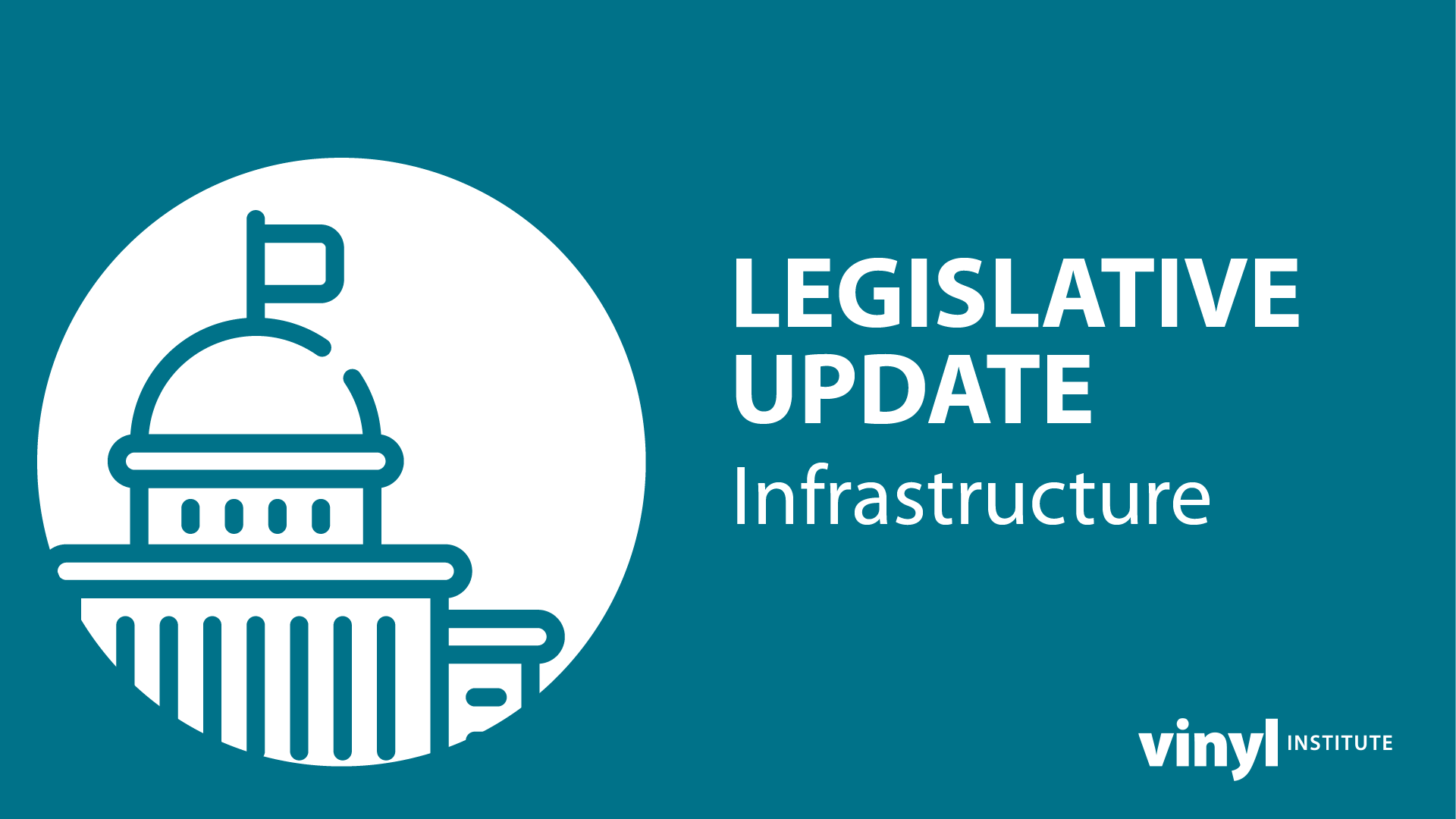This website uses cookies so that we can provide you with the best user experience possible. Cookie information is stored in your browser and performs functions such as recognising you when you return to our website and helping our team to understand which sections of the website you find most interesting and useful.
News
Legislative Update: Infrastructure
Water Infrastructure
On April 29, the Senate approved the bipartisan Drinking Water and Wastewater Infrastructure Act of 2021 (S. 914) in an 89-2 vote. The legislation would authorize approximately $35 billion through FY2026 for new and existing U.S. Environmental Protection Agency (EPA) grant and financial assistance programs to improve states’ drinking water and wastewater infrastructure, including a first-time reauthorization of EPA’s Drinking Water State Revolving Fund (DWSRF) at a level totaling $14.7 billion over five years. The proposal also authorizes $14.7 billion to be invested in the EPA’s Clean Water State Revolving Fund (CWSRF) and $100 million annually in grants supporting projects replacing lead service lines.
The VI joined a coalition of stakeholders urging Senators to not support any amendments that would open up the formulas for EPA’s CWSRF because doing so would have killed the bill. VI also sent two action alerts urging Senators to support the bill and thank you letters to all those who did. In the end, the Senate considered four amendments to the bill, including one by Sen. Marco Rubio (R-FL) to modify the allotment formula for the CWSRF to reflect current population differences among states, which was rejected 81-14. Sens. Jeanne Shaheen (D-NH) and Susan Collins’s (R-ME) amendment would have expanded an existing EPA grant program to help small and disadvantaged communities, and an amendment offered by Sen. John Kennedy (R-LA) requires EPA to conduct an annual study on the prevalence of “boil water” advisories. The Senate also rejected, 51-41, an amendment offered by Sen. Mike Lee (R-UT) on reserved water rights at national monuments.
Other Infrastructure
On May 12, President Biden met with the “Big Four” congressional leaders in hopes of negotiating a path for his two-part infrastructure package. The meeting comes after those held earlier this week with important swing voters, Sens. Kyrsten Sinema (D-AZ) and Joe Manchin (D-WV). Sen. Minority Leader Mitch McConnell (R-KY) and House Minority Leader Kevin McCarthy (R-CA) emerged from the meetings calling on the need to better define the term “infrastructure.” They stood firm in refusing to raise taxes and showing concerns of spending trillions into an economy showing inflation and could “overheat” the economy.
McConnell says he wants feedback from his entire caucus on how to shape the package, rather than just leadership’s input. Meanwhile, House Speaker Nancy Pelosi (D-CA) shared optimism for passing a bipartisan bill but noted that there are divisions on EVs. Despite the signals of little progress, the White House painted an optimistic tone on the meeting, saying they “agreed there was a need for investment” in infrastructure. “Whatever differences exist between the parties, the real competition is between the United States and the rest of the world, and that other countries are not waiting for us to equip our people to win in the 21st Century,” the White House said in a readout. The President is following up with a May 13 meeting with a Republican delegation led by West Virginia Senator Shelley Moore Capito (R-WV), who introduced a nearly $600 billion infrastructure proposal eliminating most of the clean energy and climate spending from the package.
In a press conference later that day, Speaker Nancy Pelosi and House Transportation and Infrastructure Chair Peter DeFazio (D-OR) vowed that they would move infrastructure legislation to the floor before the July 4 recess. “We are going to do a transformative 21st-century transportation bill,” DeFazio told reporters. “We’re going to deal with climate change and de-fossilization of surface transportation, which is the largest single contributor to climate change by the United States.”
Icon in graphic made by Freepik from www.flaticon.com


